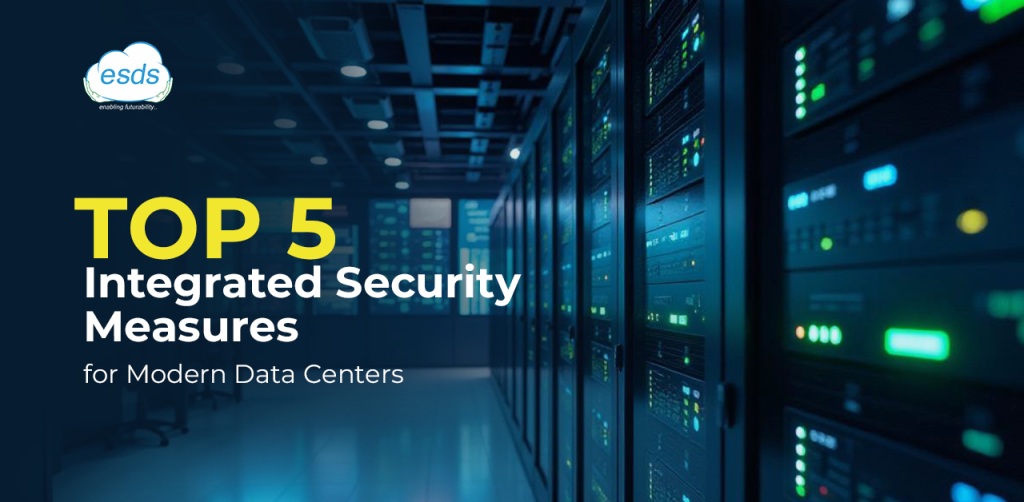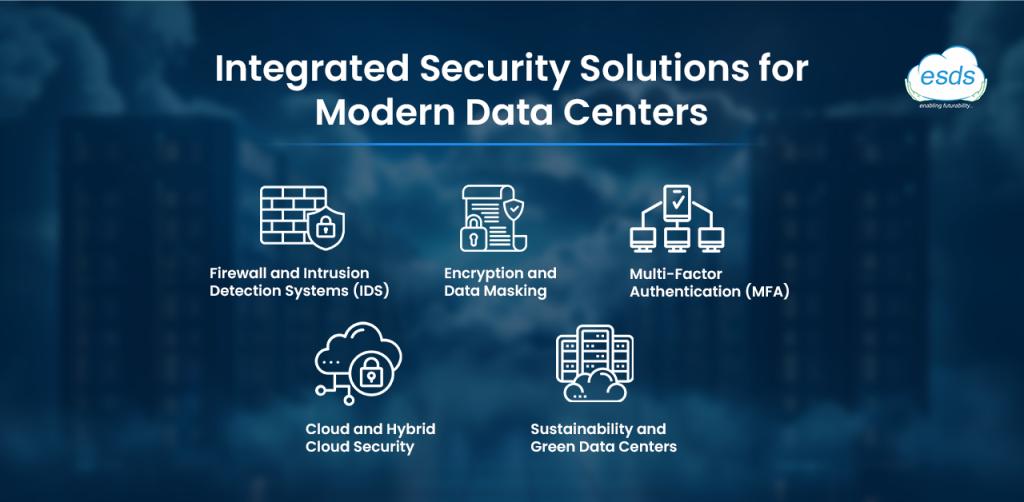
With the increasing demands of Industries for IT infrastructure due to vast volumes of data, the security of these data centers has also become more important than ever. Modern data centers are not just large storage facilities; they are highly complex environments offering a range of data center services, including real-time data management, cloud integration, and disaster recovery. Particularly in growing hubs like in India – Bangalore, Mumbai, and Mohali – considering the recent cyber attacks, the demand for reliable data center services has skyrocketed. According to Gartner, global cybersecurity spending is expected to reach $260 billion by 2027. In this blog, we’ll explore the top 5 integrated security measures essential for securing today’s data centers, especially those managed by top data center service providers.
Physical Security Control
Data center and digital security are synonymous, physical security forms are the first line of defence. Data center facilities must be equipped with multi-layered physical security measures such as biometric access, surveillance cameras, and perimeter fencing.
Firewall and Intrusion Detection Systems (IDS)
Firewalls prevent unauthorized access while monitoring incoming and outgoing traffic. implementing a robust firewall system is one of the most essential tools for securing a data center
Data center services must also incorporate Intrusion Detection Systems (IDS) to flag suspicious activities. In addition to monitoring traffic, IDS provides real-time notifications to IT managers about potential breaches. Leading data center service providers focus heavily on these technologies to prevent attacks before they compromise the system.
Encryption and Data Masking
Modern encryption protocols are now seamlessly integrated with various data center services to safeguard sensitive information. Data center management companies in India also offer data masking techniques to anonymize datasets, which is particularly useful for businesses handling sensitive personal data. This not only ensures compliance with data privacy regulations but also strengthens data security layers against breaches.
Emerging Technology: As encryption technology advances, quantum encryption is being explored as the next step in securing data. While still in its nascent stage quantum encryption promises unbreakable encryption by utilizing the principles of quantum mechanics, ensuring that any interception of data would immediately be detected. Forward-thinking data center service providers are beginning to investigate its potential integration into their infrastructure to future-proof data security.
Multi-Factor Authentication (MFA)
Password protection alone is not just enough in today’s complex cyber threat environment. Leading data center service providers now go for Multi-Factor Authentication (MFA) to protect against unauthorized system access. MFA integrates multiple forms of identification such as passwords, OTPs, and biometric scans, providing an extra layer of protection.
Many data center services in India incorporate MFA as a standard offering to provide enhanced security for enterprises operating in high-risk industries like finance and healthcare.

Cloud and Hybrid Cloud Security
Given the rapid growth of cloud adoption, many businesses are moving toward hybrid models that combine on-premises and cloud-based infrastructure. This shift introduces new security challenges, especially in data flow between environments. Data center service providers now offer specialized cloud and hybrid cloud security measures, ensuring data integrity and security across platforms. Cloud-native security tools like container security and continuous monitoring solutions help mitigate these risks.
Sustainability and Green Data Centers
Sustainability is no longer a buzzword; it is a critical focus for many businesses. To meet this demand, data centers in India, particularly in Bangalore and Mumbai, are investing in energy-efficient cooling systems, renewable energy sources, and green building certifications to reduce their carbon footprint. Companies choosing eco-friendly data center services benefit from both operational cost savings and enhanced brand reputation. The use of modular designs and renewable energy helps lower operational costs and make data centers more sustainable in the long run.
DDoS Protection
Distributed Denial of Service (DDoS) attacks remain one of the most common threats to modern data centers. Top data centers in India now offer integrated DDoS protection as part of their security services, using advanced filtering and traffic analysis to prevent large-scale attacks from disrupting services. With the rise in cyber threats, DDoS mitigation strategies are essential to ensure continuous data flow and operational uptime.
Why Choose ESDS Data Center Services?
As one of the top data center providers in India, ESDS Data Center Services is dedicated to offering state-of-the-art integrated security measures. With data centers in Bangalore, Mumbai, and Mohali, ESDS focuses on delivering comprehensive solutions, including physical security, encryption, and AI-driven predictive security tools. Whether you’re looking to enhance your security framework or deploy a fully managed cloud infrastructure, ESDS provides unparalleled expertise and reliability to keep your data safe, compliant, and future-proof.
Secure your business data today with ESDS Data Center Services—India’s leading data center management company.



Recent Comments